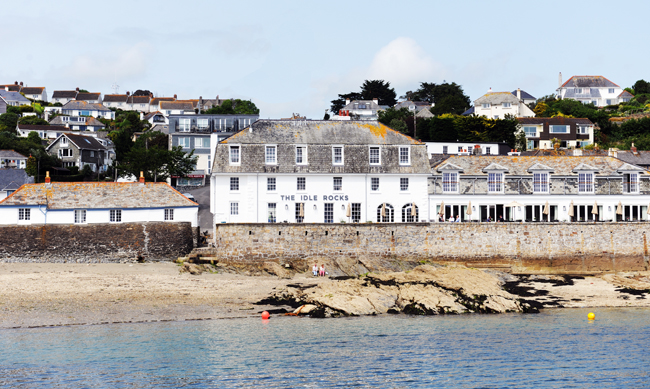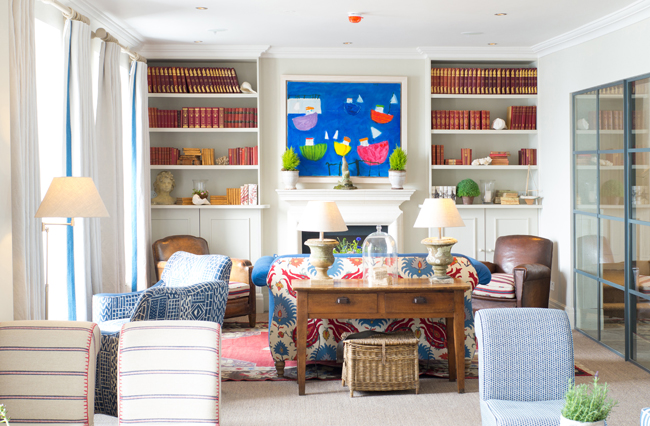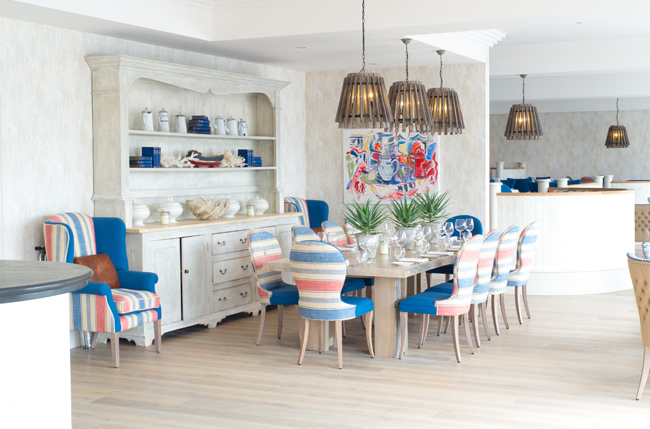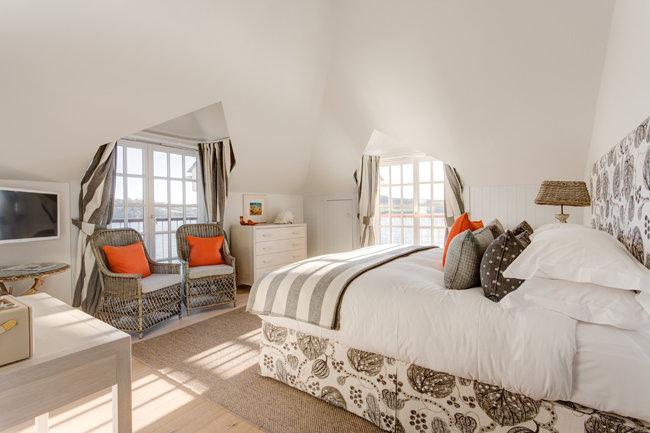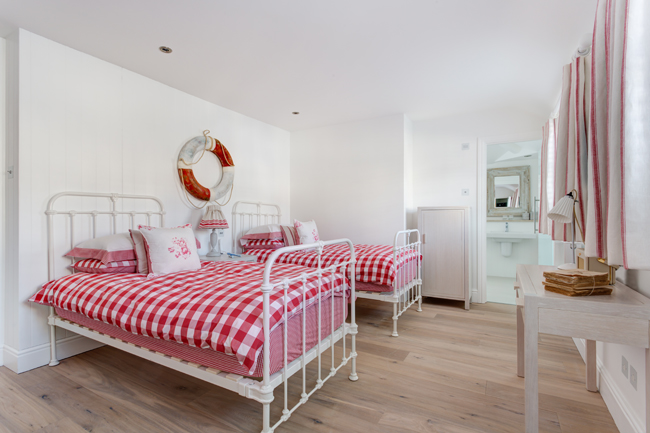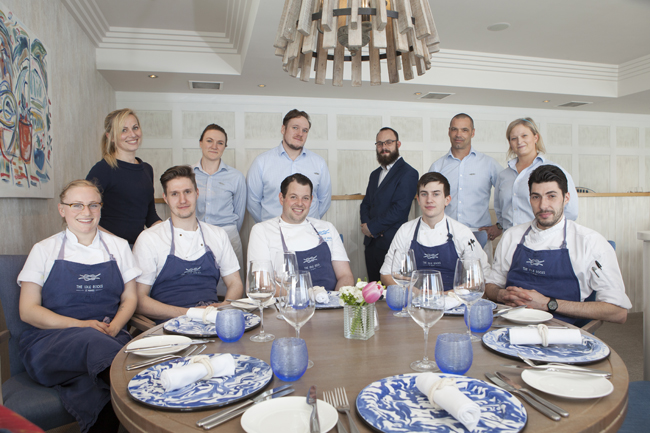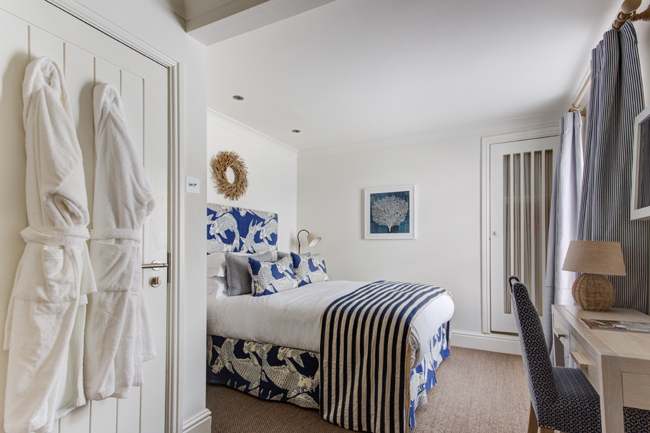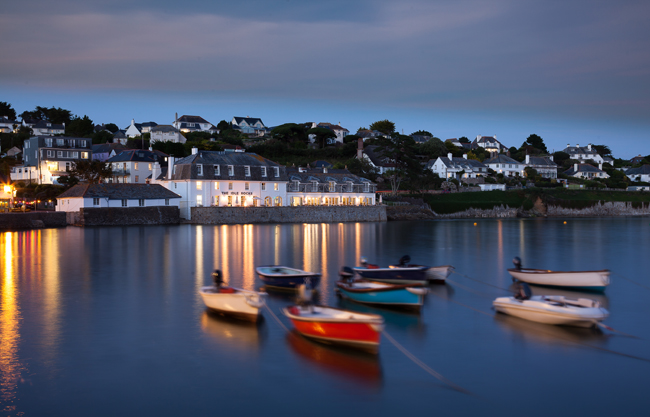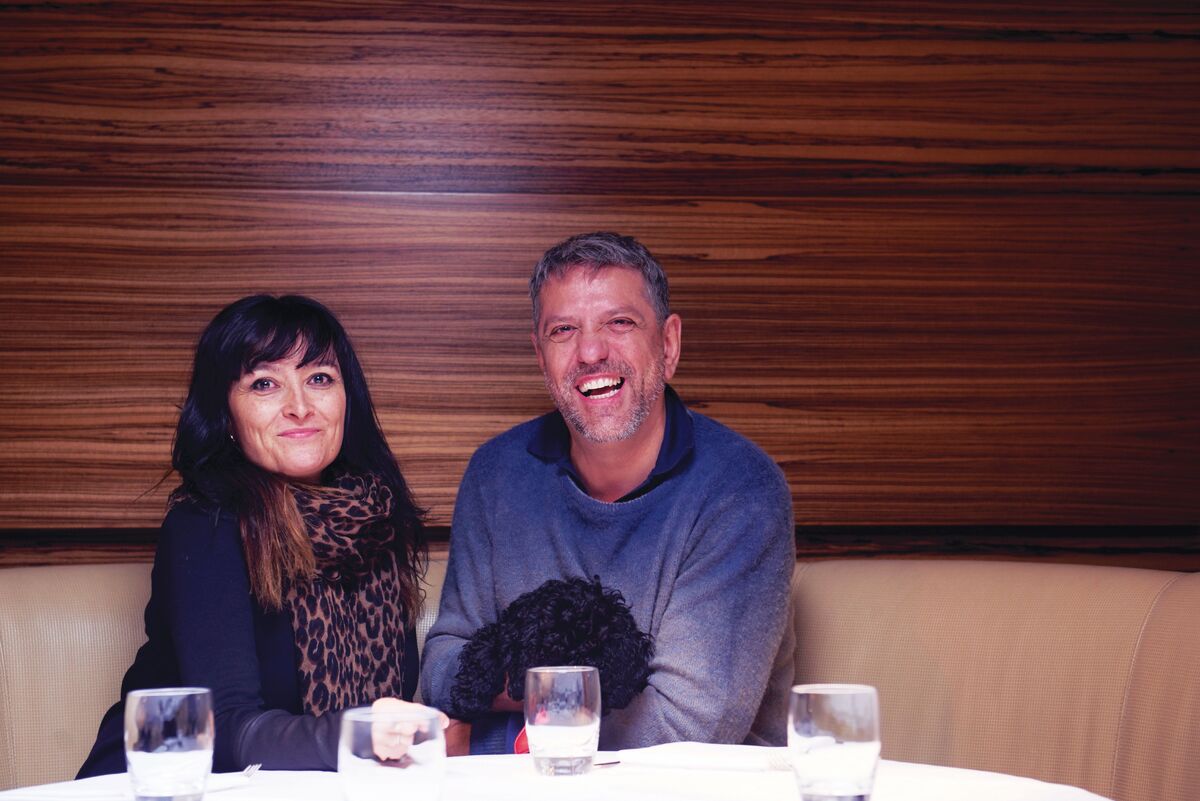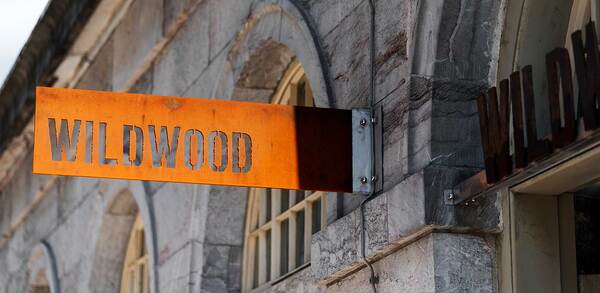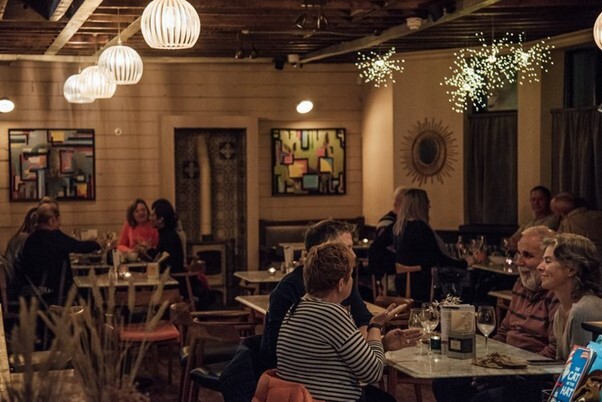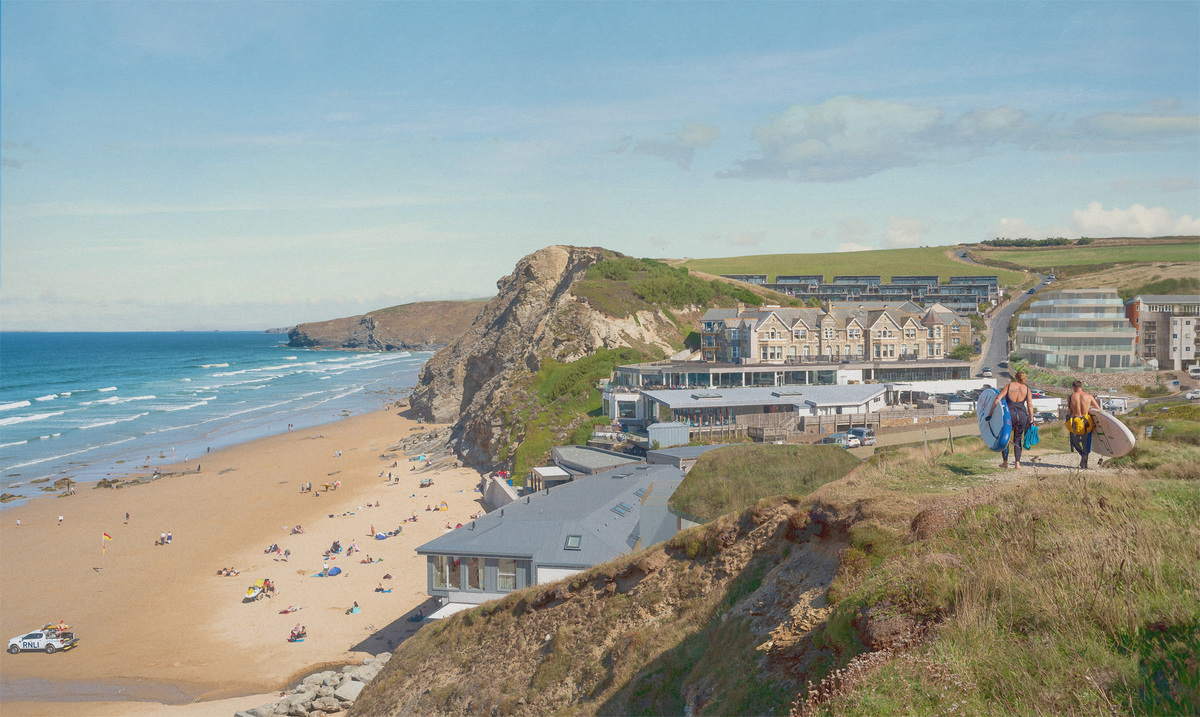Better business: the Idle Rocks
Motorsport mogul turned hotelier David Richards and general manager Nick Hanson may run one of the most enchanting hotels in the country, but the remote location of the Idle Rocks in St Mawes, Cornwall, makes staff retention a higher than usual priority. Amanda Afiya finds out how the pair attract and retain talent
Bright, white and standing proud on the waterfront, the Idle Rocks, built on the site of the old St Mawes bakery, has been operating as a hotel since 1913.
The 19-bedroom whitewash-walled and slate-roofed property, which was established as a luxury coastal venue in the 1930s, takes in stunning views of the Fal estuary. Along with its sister property the St Mawes hotel, it is owned by David Richards, chairman of motorsport business Prodrive and chairman-elect of the Motor Sports Association, and his interior designer wife Karen.
After holidaying in St Mawes for many years with their family and often wondering what the Idle Rocks could be like in new hands, the couple acquired the hotel at the end of 2012 and immediately set about a multimillion-pound refurbishment. It reopened in the summer of 2013, the same year they acquired the St Mawes hotel across the road. The Idle Rocks was welcomed into the Relais & Châteaux family in January 2016.
The challenge
The hotels' picturesque setting in the remote and compact town of St Mawes is something of a double-edged sword for employees, as it presents one of the most beautiful places in the UK, indeed the world, in which to work, but also one of the quietest.
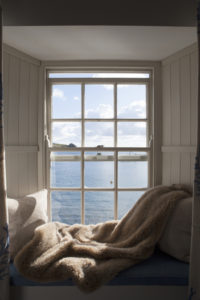
Unlike motor racing, where Richards says that he might get 100 applications for just one role, in the hospitality industry â" and in remote locations in particular â" things are more challenging.
âWe have the wrong attitude in Britain towards the hospitality industry and we think itâs belittling to give great service to other people â" itâs very much an âupstairs downstairsâ thing â" and weâve got to overcome the prejudices with proper training and proper education,â he explains.
Itâs important for the couple that everyÂone they employ at the two hotels brings something to the business, and that they are the right match for what the entrepreneurial pair are trying to create. âKaren and I have a very clear vision for what we want to deliver,â Richards says. âWe have evolved with our thinking and the management team share that vision. Itâs important to get someone who is aligned to your way of thinking in order for you to work together effectively.â
The solution
Cue Nick Hanson, who was brought on board in June 2016 to look after the day-to-day running of the two properties. Hanson, who was appointed as general manager, has a CV that includes wide-ranging experience, from the Bath Priory to the Vineyard at Stockcross, and from Sharrow Bay in the Lake District to the Royal Scotsman in Edinburgh, as well as running his own six-bedroom business, Bellachroy on the Isle of Mull, with his wife Debbie for eight years until its sale in 2013.
When recruiting, Hanson says heâs looking for people with a sixth sense. âIn any hotel that I have worked in, the most challenging thing has been to find the right people to work with. You need a combination of someone who has the right personality and who understands what our guests are expecting. And you can train and train and train someone, but if they donât have that genuine warmth and enjoy looking after people, then the CV is irrelevant, really. Hopefully, you find theyâve got some skills that you can build on.â
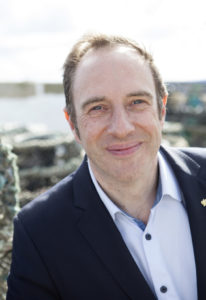
Among the key perks and incentives that have been introduced are flexible working hours to attract those with great skills, and cost-price rooms for parents of staff wishing to visit their children during the shoulder months. Staff pizza and movie nights at the St Mawes hotelâs own luxury cinema have also proved a great way to say thank you at key times through the year.
Hanson continues: âRelocating to Cornwall not only provides the benefits of the natural beauty of the coastline, but increasingly the cost of living compared with the rest of the country means that even those on the living wage are able to achieve a far better work-life balance compared to their counterparts in London or the south-east.
âSid, our concierge, organises day trips for small groups of team members to show them how best to spend their leisure time and get the best out of Cornwall. The hotel yacht is used as and when possible to introduce the team to the delights of the local sailing scene. And we are always happy to aid with more intensive training for a short period of time to help create a positive hobby for our team.â
Meanwhile, being part of the Relais & Châteaux family means that team members can stay at any UK member property âat a very beneficial rateâ. Hanson says: âNot only do we promote our team members taking every opportunity to experience how our peer group manage, but we actively invite Relais colleagues to come and visit us, and this affords our team an opportunity to engage with a wider team and understand the challenges faced nationally.â
Close links with several European hospitality universities, including Vatel at Nîmes in France, means that the two hotels are typically training five students during the season. âWe are now receiving more applications than we can accommodate, all of undoubted quality,â says Hanson, who also highlights the support of the owners. âDavid and Karen are huge influencers on the team and their input should never be underestimated.â
Finally, Hanson says live-in accommodation is âclearly imperativeâ on the Roseland Peninsula. Renting their own accommodation is not always possible for the junior members of the team, and many of them donât drive.
âWe have invested in six properties and we have a programme of works that will ensure that the majority of accommodation will be self-contained, affording everyone their own space to be proud of at the end of their shift.â
The numbers
Bedrooms 19 at the Idle Rocks, seven at the St Mawes hotel
Occupancy rate 65%
Room rates From £200 to £405 per night
Average spend £58 on food, £35 on beverage for dinner at the Idle Rocks; £27 on food, £19 on beverage for dinner at St Mawes
Number of staff Fluctuates between 45 and 80 seasonally, including part-time team members. The team are employed to work at both hotels as and when required
Key audience Anyone who enjoys genuine hospitality and the best of Cornish produce. A loyal local following and regular guests from around the UK and abroad visit every year
Senior team, employed across both properties Paul Goodwin, hotel manager, Guy Owen, head chef, Rachael Henley, food and beverage manager, Paul Reynolds, head of finance, and Sid Williams, concierge
David Richards on…
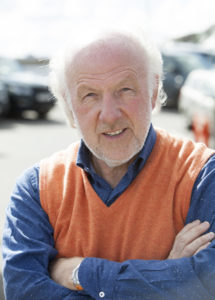
Brexit âClearly there is uncertainty with the situation. Fortunately, we are not as dependent on overseas staff as other hotels are in the region â" itâs less of a concern for us. But the reduction in the value of the pound to the euro and the dollar has meant that we have had more overseas guests than previous years. We expect 10% of our customers this year to come from overseas, which is a good indication for the future.â
Hotel number three âWe would possibly do something family-orientated right by the seaside. So if it comes up, it is something that we would consider.â
F1 vs hospitality âRunning a small hotel is as difficult as running an F1 team. Itâs just that I had a lot of experience in F1 and very little experience in hospitality, so Iâve been learning on the hoof.â
Attention to detail âI have a passion in everything I do in equal measure, and I know the staff [at the hotels] recognise our enthusiasm. We can be very challenging and fastidious, but if you get the right people who enjoy the various accolades, it can be wonderful.â
Learning on the job
Training forms a large part of the perks and incentives on offer to team members at the Idle Rocks and its sister St Mawes hotel. Schemes offered include the following:
Language lessons organised on a weekly basis for all overseas staff and catering for varying levels of ability.
Cross-training allows team members to operate confidently across multiple departments at both the Idle Rocks and St Mawes hotels. It supports the offer of full-time roles all year round â" a huge benefit for those who wish to make their home in an area of the country that typically has seasonal positions only.
Links with Truro College ensure that those looking to make hospitality a career can see a clear progression plan. Nick Hanson cites two examples: a restaurant supervisor who is now studying for a finance apprenticeship and works two days in the finance office, one day at college and two further days operationally to offer further exposure in the business; and another team member who joined with no qualifications at all but has now passed maths and English GCSE at Truro College, WSET level 2 and is currently studying for WSET level 3 â" and has also been accepted into the companyâs Champagne Academy.
The business has invested in Lobster Ink, an online training programme allowing team members to learn at their own pace. The most gifted can fast-track and move from operational training modules to developing managerial skills and understanding about the need for a return on investment. âWe also encourage the team to diversify and follow modules not related to their department to gain a better understanding of how to make our business a success,â adds Hanson.
The concierge: boat hire, hidden beaches and the Poldark go-to
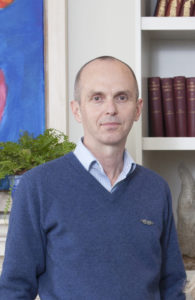
âGrowing up in Cornwall in the mid-1980s was so different to how it is now,â explains Williams. âIt was so barren. There was no work, the internet didnât exist, and neither did the road networks that we have today. As you can imagine, Soho blew my mind!â
There was dearth of gainful employment in Cornwall at the time, but Williams secured a job within days of his arrival in the capital and embarked on an art degree, having previously completed an art foundation course at Falmouth School of Art.
Following university, he worked in graphics (and briefly in TV and as a motorcycle courier), before settling down with a fashion collective, which was approached one day to run a pop-up shop at the Sanderson, the luxury boutique hotel in Londonâs Fitzrovia.
While working at the hotel Williams slowly became aware of the service offered by the concierge team and realised that he too could answer many of the guestsâ requests. And so he joined the team.
âWhen I was at the Falmouth School of Art Iâd worked in a couple of hotels in Falmouth and I had loved it, and back home in St Ives my family had had hotels and B&Bs, so there was something about hospitality â" the glamour of it, the diverse range of people coming through the doors â" that made me often romanticise about it. The concierge team was brilliant at the Sanderson, and Morgans Hotel Group were very good at looking after their staff. I loved it there.â
But a desire to bring up his and his partnerâs son, now five, in a relaxed environment inspired Williams to relocate to the south-west after reading about David Richardsâ plans for the Idle Rocks. âMoving back down became a goal, and Davidâs foresight to put this type of hotel in Cornwall helped me make the move.â
Taking on the role of concierge in such a remote location, Williams found that he was met with quizzical looks when he explained to businesses that his job would go well beyond parking cars and running guests up the road to a nearby eatery. Five years on, Williams now classes many of the local restaurateurs, fishermen, surf instructors and gallery owners, etc, as his âmatesâ, thanks to the business he has put their way.
âYou can read the best guidebooks on the county but you canât beat someone who is âliveâ. You just need to home in on someoneâs interests. Americans, for example, like their hand held. If they go on holiday every four or five years, they donât want to waste time â" thatâs where I come in.â
Standard questions include where Poldark is filmed and everyone wants to know where the hidden beaches are, but Williams says that the more interesting requests come from guests who literally want to push the boat out for landmark events, such as their 50th celebrations.
For example, a forthcoming event will see boats, kayaks and stand-up paddle boards available for all guests, and arrangements have been made for guests to be ferried to nearby beaches accessible only by boat and ideal for beach parties. Other bespoke requests have included chartering a local ferry for up to 60 people.
âI always encourage people to go out on the water at some point â" itâs part of the life here.â



